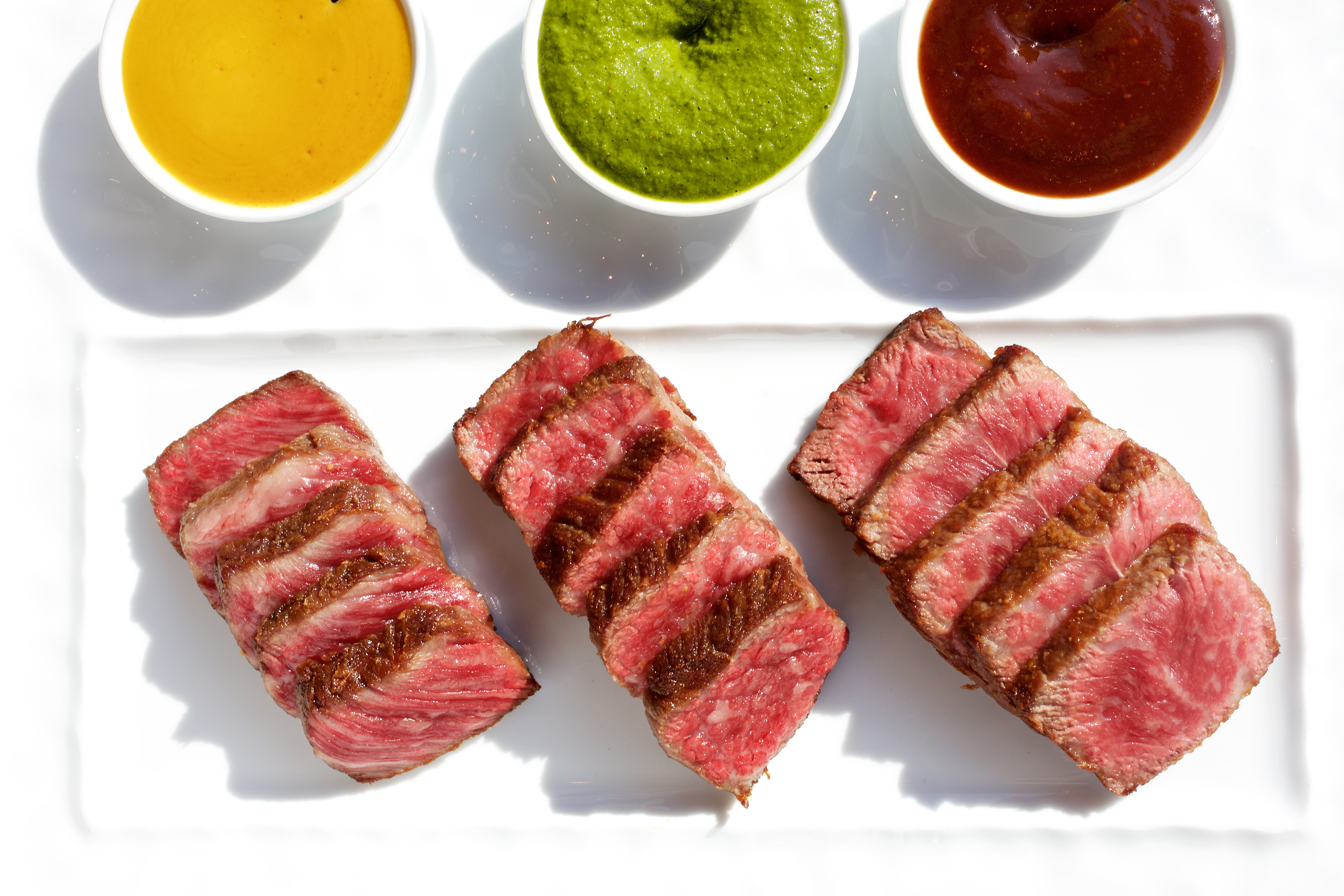Wagyu Beef Smells (And Tastes) Great Because Of Fat And Maybe Candy
There are many things to love about melt-in-your-mouth wagyu beef. But scientists have been wondering how the rare—and exceedingly pricey—beef gets its unique, unctuous smell, faintly reminiscent of coconut and butter.
In a lengthy new study in the Journal of Agricultural and Food Chemistry (via NPR), we learn the secret of wagyu's intoxicating aroma: unsaturated fatty acids. According to Satsuki Inagaki, the study's lead author, wagyu's incomparable deliciousness has to do with its diet of corn, as well as breeders allowing the cows to live longer than its cheaper, less blessed cattle brethren.
Wagyu beef comes from several breeds of Japanese beef cattle. In the States, wagyu cattle are often bred with Angus cattle to produce that Kobe burger you pay an arm and a leg for. But as for the real deal—the top-of-the-line A12-graded wagyu—they won't even ship it outside Japan. And if you've been told otherwise, my friend, you have probably been scammed.
Already costing an average $150 per pound, those with access to wagyu are finding ways to make their precious delicacy even more unique. In Australia, a cattle farmer started feeding his herd candy (including M&Ms, Smarties and crushed up chocolate bars) to give the meat an even sweeter flavor. The results offended some chefs, but Australia's ABC news reports that a diners are ponying up $380 for about 10 ounces of the candy meat.
If you're worried the Smarties diet will be harmful to the cattle, the breeder assured ABC that, "no, they don't have diabetes."
